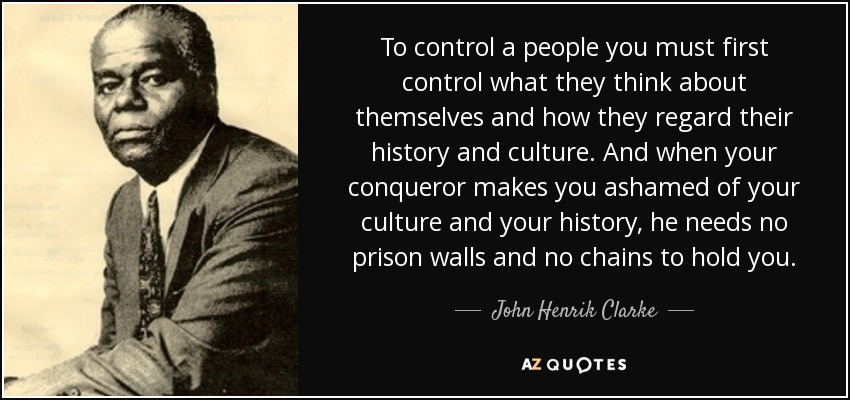
#JohnHenrikClarke #African-American #BlackAmerican #Black History #RenewedFightforLiberty
The Emancipation Proclamation created official freedom for a large number of Blacks,
but no immediate protection for that freedom. Some old troubles ended while new
troubles began. The attitudes of slavery still lingered in the minds of many Whiles, both
in the North and in the South.
This pseudo-racial democracy continued for approximately eleven years before the political "horse-trading" between the South and the North crystallized during the presidential campaign of 1874-75. This point marked the beginning of a period that could be called the betrayal of the era known a "Reconstruction."
During the last twenty-five years of the 19th century, Blacks in the United States were
forced to renew their fight in pursuit of liberty. Many Blacks who had been duly elected
to public office were physically barred from entering some of the legislative halls in the
states. The political gains of the Reconstruction era were lost. The late professor
Rayford Logan, formerly of Howard University, referred to this period as the "nadir",
symbolically the hour of our greatest depression.
African religions and the use of the drum were outlawed in the United States, making it
more difficult to sustain African cultural continuity there than in the Caribbean. The
impact could be seen in the work of the American Colonization Society and early back to-Africa movements, such as the Chief Sam movements during the 1870s, and the
movements led by Bishop Turner.
Near the end of the 19th century, Whites who had shown an interest in the cause of
Blacks grew tired of trying to communicate with a multiplicity of leaders. Finally, White
editorial writers and philanthropists of goodwill anointed a man they could accept as
a leader. His name was Booker T. Washington. As founder of Tuskegee Institute,
Washington came to public attention after his speech at the Atlanta Cotton Exhibition,
which some regarded as an attempt to make peace with the North and the South. As an
educator, he was misunderstood then, and he is misunderstood now. Many people
thought his political views were weak, but believed he was a great and imaginative
educator who taught and practiced self-reliance. People failed to properly assess his
views and methods, which were both strong and beneficial to Black people in the United
States and abroad.
This was the period when W.E.B. DuBois emerged as one of the finest intellects of
African descent produced in the western world. All of this occurred during the period of
Black radical journalists such as T. Thomas Fortune and William Monroe Trotter.
The African movement in pursuit of liberty has had a worldwide influence, in the Caribbean. Newly freed Africans there were discovering the feeling of their
emancipation, just as we had discovered the feeling of ours. In Africa, colonial wars
were being waged as they had been waged for nearly one hundred years. This pursuit
of liberty by African people all over the world has brought us fighting, hoping, and
bleeding into this century.
Comments
Post a Comment